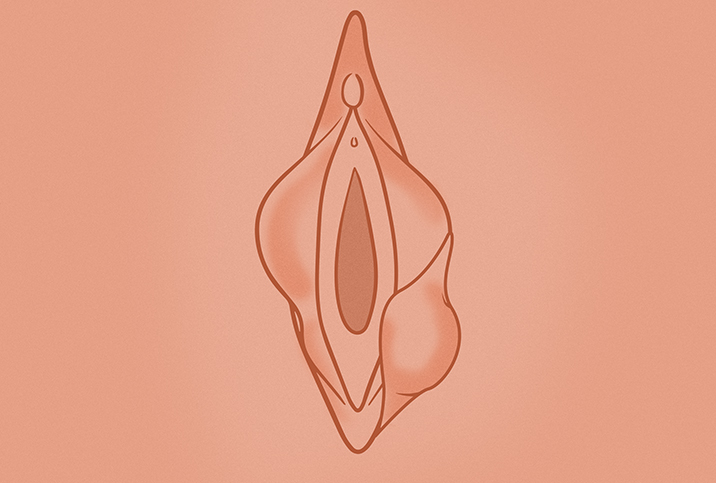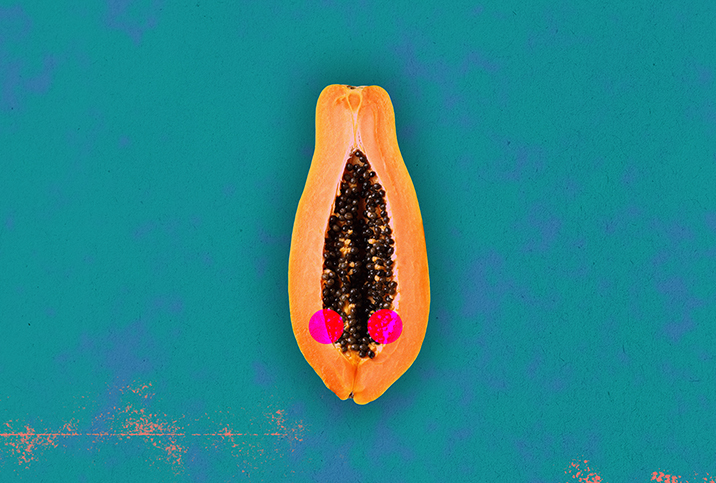Bartholin Cysts Are Nothing to Be Ashamed About

When you have a medical issue involving your genitals, it can feel shameful or downright embarrassing, but you don't have to feel that way. And when your genital area behaves differently than what's considered normal, it can cause panic. But problems you perceive as serious often turn out to be common and easily treated, as long as you understand the root cause.
One such issue can stem from the Bartholin glands, located on either side of the opening to the vagina. While there isn't a surefire way to prevent these tiny glands from becoming cystic, there are some simple solutions if they do.
The Bartholin glands secrete fluid that helps lubricate the vagina. Sometimes, they become obstructed and fluid backs up in the gland. This results in swelling, called a Bartholin cyst, and possible inflammation. Not everyone realizes there's an issue, because the cysts can be small and not cause any pain. However, if the fluid within the cyst becomes infected, you may find yourself dealing with an abscess, which can be quite painful.
It's important to note that a cyst can become infected within a matter of days—be mindful of your symptoms so you can get appropriate medical intervention.
Small, uninfected Bartholin cysts are typically painless but can still be tender, according to the United Kingdom's National Health Service. A cyst may become noticeable during sexual intercourse, while walking or sitting, or during a routine pelvic exam.
It's important to note that a cyst can become infected within a matter of days—be mindful of your symptoms so you can get appropriate medical intervention. If the cyst becomes painful, you feel pain during sexual intercourse or serious discomfort while sitting, or you begin running a fever, reach out to your doctor so they can plan a course of treatment. The treatment for Bartholin cysts depends on the size of the cyst, how painful it is and whether it's infected. A biopsy may be required to rule out a more serious problem.
What it's like to have a Bartholin cyst
Rachel, a 41-year-old mother of six, has dealt with Bartholin cysts during multiple pregnancies. Typically, the cysts didn't become infected or cause her any discomfort, but they were still disconcerting to find. She was embarrassed and thought she had contracted a sexually transmitted infection (STI). Rachel finally sought care from her obstetrician after suffering inflammation and pain for two weeks. She was surprised to find how common these cysts are.
During her fourth pregnancy, another cyst occurred and became infected. Rachel immediately reached out to her doctor, who decided removal of the Bartholin gland was the best plan of action. When Rachel expressed anxiety that this would cause lubrication issues in the future, her doctor assured her this was not the case. While the Bartholin glands do aid vaginal lubrication, they aren't the only factor, and you can always supplement with commercial lubricant if you're uncomfortable.
Personal hygiene and gynecological care are important
Although there is no way to prevent Bartholin cysts from occurring, being mindful of personal hygiene and safer sex practices can help.
If you have an uninfected cyst and want to treat it at home, Yami, a midwife educated at the University Hospital Center and College of Medicine of Poitiers in France, recommended using a sitz bath to aid in comfort, and over-the-counter pain medication for any pain you may be experiencing.
She noted that most women don't realize they have a cyst unless it becomes infected. If you think your cyst is infected, contact a medical professional; don't attempt a DIY treatment. Depending on the severity of the cyst, a doctor may recommend surgical drainage or even removal of the Bartholin gland. Never attempt to pop or drain an abscess at home because this can cause further infection or damage.
Yami described gynecological care as self-care. Most cis women should see their gynecologist once a year for an exam, sexual encounters should be made as safe as possible, and personal hygiene is vital. Using non-perfumed soaps on the outer portion of the vulva is important, as added fragrance or dyes can cause discomfort and change the bacteria commonly found in this microbiome. Your body has good bacteria that keep the vagina in perfect pH balance. When you add foreign products to your body, you change the good bacteria and it can no longer fight infections, resulting in irritation, itching or burning.
Being aware means being prepared
As with anything pertaining to our bodies, being educated on how to care for our vulvas and when to seek medical attention is important. We can't allow shame or embarrassment to color our perspective when it comes to our health. When we take care of our bodies, they take care of us.


















